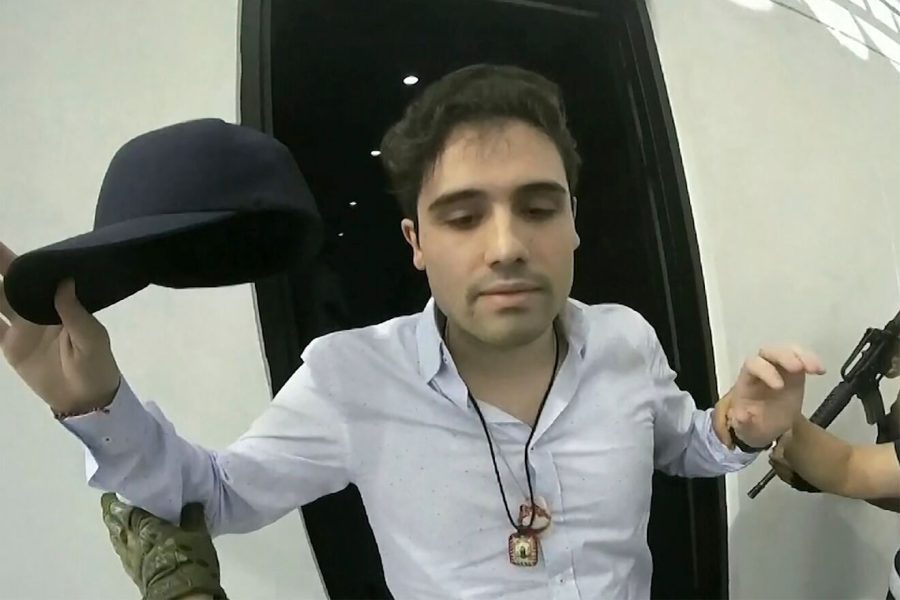Ovidio Guzmán and the Siege of Culiacán
Cartels. We’ve all heard of them: notorious for their organized crime, drug trafficking and more. The most famous modern-day cartel would be the Sinaloa drug cartel, previously run by infamous drug lord Joaquín “El Chapo” Guzmán, father of Ovidio Guzmán, recently arrested by the Mexican National Guard.
What was the siege of Culiacán? In simple terms, it was the aftermath of a “successful” operation by the Mexican National Guard to capture Ovidio Guzmán. Keep in mind that when the Guardia Nacional first attempted to arrest Guzmán in 2019, they failed, possibly because the armed forces tried to arrest him in broad daylight. (Let that sink in.) He was soon set free after gunmen shot up the city with high-powered weapons.
As the beginning of his installation as a leader of the Sinaloa drug cartel, Guzmán was charged in the U.S. with conspiracy to traffic cocaine, methamphetamine and marijuana into the United States, and was put under a $5,000,000 bounty by the Department of Homeland Security. The State Department states Guzmán oversees methamphetamine labs in Sinaloa responsible for producing “3,000 to 5,000 pounds” of the drug per month, as well as indicating that he has ordered multiple murders, including a popular Mexican singer who had refused to sing at his wedding. This information obviously leads us to conclude that Guzmán is not the nicest type of person.
This is not the first time Guzmán has been captured and arrested by the Mexican government. In 2019, federal forces raided Guzmán’s home. He was later released as hundreds of Sinaloa fighters seized control of the city, taking hostages, blocking intersections with burning vehicles, and laying siege to a housing complex for the families of military personnel, killing eight. which led to president Andrés Manuel López Obrador ordering Guzmán’s release to avoid more bloodshed. Law enforcement in both the U.S. and Mexico stated that they were furious about the bungled operation, which humiliated federal forces and emboldened the cartels.
42% of Mexicans say the most recent arrest of Guzmán makes them feel safer, according to an Enkoll poll carried out by El Pais and W Radio—but in Culiacán itself, the figures are far lower, with only 17% of the population reporting feeling safer and almost 50% of respondents saying they feel less safe than before the operation. The arrest of Guzmán is an international victory for Mexico, but citizens in Culiacán feel quite differently. The fact that a Sinaloa gunman responded to the arrest of Guzmán by shooting at a commercial airplane may go some way to explaining that.
What do I think about Guzmán’s arrest? I genuinely think that the arrest was justified and was necessary for the safety and security for Mexico and its civilians. This is because of the intimidation and threat of the Sinaloa cartel imposing their power on the Mexican government. However, I know for a fact that the Mexican government could have executed Guzmán’s arrest differently if they had simply put more thought into the matter. One way they could have achieved this is if they had thought, back in 2019, that approaching a cartel leader’s home in broad daylight just might be a bad idea. Doing this could have saved lives, resources and the most valuable resource of all, time. However, Guzmán’s arrest was a very good sign of strength for Mexico and its government, especially as President Biden and Canadian PM Justin Trudeau travel to Mexico. This proves to them that Mexico can handle their own problems, showing the power of the Mexican nation, which I heavily support. Guzmán’s arrest also sets a good role model for other nations to start going after leaders of their cartels, improving the life of the average citizen which, yet again, I heavily support and believe in.
In all, it highlights the ongoing conflict between the Mexican government and Sinaloa cartel, and the challenges formal authorities face in tackling organized crime in the country. Even though the government grievously failed in 2019, the second operation went some way to reestablishing Mexico’s independence, freedom and the power, while also fighting against the Sinaloa cartel’s dangerous and inhumane sphere of influence.
